The Importance of Reliable Supply of Basic Iron and Steel in Nigeria with Wigmore Trading
The Importance of Reliable Supply of Basic Iron and Steel in Nigeria with Wigmore Trading
Nigeria’s economy relies heavily on the availability of basic iron and steel, making it crucial for businesses to have a reliable supply. In this blog post, we delve into the importance of securing a consistent source of these essential materials with Wigmore Trading. Stay tuned as we explore how having a dependable supplier can drive growth and success in your operations.
Introduction to Wigmore Trading and their role in the supply of basic iron and steel in Nigeria
Introduction to Wigmore Trading and their Role in the Supply of Basic Iron and Steel in Nigeria
Nigeria, being one of the largest economies in Africa, has a high demand for basic iron and steel products. These materials are crucial for various industries such as construction, manufacturing, and infrastructure development. However, ensuring a reliable supply of basic iron and steel in Nigeria has been a challenge due to the limited local production capacity and dependence on imports.
This is where Wigmore Trading comes into the picture. Founded in 2010, Wigmore Trading is a leading supplier of basic iron and steel products in Nigeria. The company specializes in importing high-quality products from renowned manufacturers across the globe to meet the growing demand for iron and steel in the country.
Wigmore Trading has established itself as a reliable source for various types of basic iron and steel products such as galvanized pipes, black pipes, square tubes, beams, angles, plates, sheets, bars, wire rods, and many more. The company also offers custom cutting services to provide customers with tailor-made solutions that meet their specific requirements.
One of the key factors that set Wigmore Trading apart from other suppliers is its commitment to quality assurance. The company works closely with its network of trusted manufacturers to ensure that all products meet international standards such as ASTM (American Society for Testing Materials) or BS (British Standards). This ensures that customers receive only top-notch products that are durable and reliable.
In addition to providing quality products at competitive prices, Wigmore Trading also takes pride in its efficient supply chain management system. The company has strategically located warehouses across major cities in Nigeria which enables them to fulfill orders promptly without any delays. This ensures that customers have access to a steady supply of basic iron and steel products whenever they need it.
Furthermore, Wigmore Trading is committed to promoting sustainable development practices by adhering to environmentally friendly processes throughout its operations. The company also emphasizes ethical sourcing and fair trade practices, ensuring that all its suppliers comply with international labor laws.
Wigmore Trading plays a significant role in the supply of basic iron and steel products in Nigeria. With its commitment to quality, efficient supply chain management, and ethical practices, the company has become a trusted partner for many industries in the country.
The current state of the iron and steel industry in Nigeria
The iron and steel industry is an integral part of Nigeria’s economy, as it provides the basic building blocks for various sectors such as construction, manufacturing, and infrastructure development. However, the current state of this industry in Nigeria is facing several challenges that have hindered its growth and potential.
One of the major challenges faced by the iron and steel industry in Nigeria is the lack of reliable supply. This results from a combination of factors such as inadequate raw materials, limited production capacity, and poor infrastructure. As a result, there has been a heavy reliance on importation to meet the demand for iron and steel products in the country.
Moreover, there has been a decline in local production due to outdated technologies and equipment used by most companies in the sector. This not only affects the quality of products but also makes them less competitive in both local and international markets. In addition to this, high production costs have also contributed to low productivity levels within the industry.
Furthermore, the recent economic downturn coupled with fluctuating global prices has affected investment in this sector. Many companies have struggled to stay afloat amidst rising costs and increasing competition from imported products. This has resulted in plant closures and job losses within the industry, leading to further challenges in meeting market demands.
Another significant issue facing Nigeria’s iron and steel industry is policy inconsistency. Frequent changes in government policies have created uncertainty among investors who are vital for driving growth within this sector. The lack of long-term planning strategies has made it difficult for businesses to make informed decisions that could positively impact their operations.
While there is great potential for growth within Nigeria’s iron and steel industry due to its abundance of natural resources such as coal and iron ore reserves, there are still many hurdles that need to be addressed. The government must focus on creating an enabling environment for businesses by providing adequate support through policies that promote local production while also attracting foreign investments into this critical sector.
At Wigmore Trading, we understand the importance of a reliable supply of basic iron and steel to the growth and development of Nigeria’s economy. That is why we are committed to providing high-quality products that meet international standards while also supporting local production. With our extensive network and partnerships, we aim to bridge the gap between supply and demand in this sector and contribute to the growth of Nigeria’s economy.
– Challenges faced by suppliers and manufacturers
The Nigerian market for basic iron and steel is facing numerous challenges that are affecting the reliable supply of these essential materials. These challenges are faced by both suppliers and manufacturers, who play a crucial role in meeting the demand for iron and steel in the country.
One of the major challenges faced by suppliers is the lack of infrastructure. Nigeria has been struggling with inadequate transportation systems, including roads, railways, and ports. This makes it difficult to transport raw materials and finished products from one location to another, resulting in delays and inefficiencies in the supply chain.
Another challenge faced by suppliers is the inconsistency in government policies. Frequent changes in policies related to trade and taxation can disrupt supplies and increase costs for both suppliers and manufacturers. This uncertainty also affects long-term planning for investment in infrastructure or technology upgrades.
For manufacturers, a significant challenge is the high cost of production. The use of outdated technology, reliance on imported equipment, and expensive energy sources all contribute to higher production costs. As a result, many local manufacturers struggle to compete with cheaper imports from other countries.
Additionally, sourcing quality raw materials poses a difficulty for manufacturers as there are limited options available locally. Most iron ore used in steel production needs to be imported from other countries such as China or India due to insufficient domestic supply. This increases lead times and adds extra costs to manufacturing processes.
The lack of skilled labor is also an issue faced by both suppliers and manufacturers. The majority of workers in this industry have little technical training or experience which results in lower productivity levels compared to their counterparts in more developed countries.
Furthermore, political instability and security concerns pose a threat to reliable supply chains in Nigeria’s iron and steel industry. Civil unrest or conflicts can disrupt transportation routes or close down factories entirely causing severe disruptions to supplies.
Despite these challenges, companies like Wigmore Trading have continued their efforts towards ensuring a reliable supply of basic iron and steel products across Nigeria. By investing in modern technology, establishing partnerships with reliable suppliers and manufacturers, and prioritizing quality control measures, they have been able to maintain a steady supply of essential materials.
With the government’s support in addressing infrastructure gaps and implementing stable policies, the challenges faced by suppliers and manufacturers can be gradually overcome. This will not only improve the reliability of iron and steel supplies but also contribute to the growth of Nigeria’s economy as a whole.
– Impact on the economy and development
The supply of basic iron and steel has a significant impact on the economy and development of any country, including Nigeria. This is because iron and steel are essential raw materials for various industries, such as construction, manufacturing, and energy production. The reliable supply of these materials is crucial for economic growth and development in several ways.
Firstly, the availability of basic iron and steel is crucial for infrastructure development in Nigeria. As a developing country with a rapidly growing population, there is a high demand for new roads, bridges, buildings, and other structures. These projects require large quantities of iron and steel to be completed successfully. Without a reliable supply of these materials, the construction industry would suffer delays and setbacks, ultimately hindering the country’s overall progress.
Moreover, the manufacturing sector in Nigeria heavily relies on basic iron and steel to produce goods such as machinery, vehicles, appliances, etc. A steady supply of these materials ensures that industries can operate smoothly without interruptions or production delays due to shortages. This leads to increased productivity levels and contributes significantly to economic growth.
In addition to infrastructure development and industrial use, reliable supplies of basic iron and steel also play a crucial role in energy production in Nigeria. The majority of power plants in the country rely on hydroelectricity generated from dams that require large amounts of reinforced concrete made with iron rods. Any disruption in the supply chain could lead to power outages affecting businesses’ operations across different sectors.
Apart from its direct impact on specific industries mentioned above; a stable supply of basic iron and steel also has ripple effects throughout the Nigerian economy. For instance,
the transportation industry depends on these materials for vehicle parts like engines or wheels – making it possible to transport people or goods effectively across cities or even internationally.
Another area where this reliable supply plays an important role is job creation. With an increase in demand for infrastructural projects comes more job opportunities for skilled workers involved in mining raw materials like iron ore, processing it into steel, and finally supplying it to various industries. This helps reduce unemployment rates and boosts the country’s overall economy.
Moreover, a reliable supply of basic iron and steel also attracts foreign investments. With a stable supply chain in place, international companies are more likely to invest in Nigeria’s industrial sector without worrying about potential disruptions or delays. This not only brings in much-needed capital but also creates more job opportunities for locals.
The importance of a reliable supply of basic iron and steel cannot be overstated when considering its impact on the Nigerian economy and development. It is crucial for infrastructure development, industrial growth, energy production, job creation, and attracting foreign investments. Therefore, ensuring a steady supply of these materials should be a top priority for the government and relevant stakeholders in order to support economic growth and advancement in Nigeria.
Importance of a reliable supply of basic iron and steel
The supply of basic iron and steel is a crucial aspect of any country’s economic growth and development. In the case of Nigeria, this holds even more significance due to its rapidly growing population and increasing industrialization. As the demand for infrastructure, construction materials, and consumer goods continues to rise, the availability of a reliable supply of basic iron and steel becomes essential.
One of the primary reasons why a reliable supply is crucial is because it directly impacts the cost and quality of products. Basic iron and steel are used in various industries such as construction, manufacturing, transportation, energy production, and others. These industries rely heavily on the consistent availability of high-quality raw materials to produce durable and efficient products at competitive prices.
Without a steady supply of basic iron and steel, manufacturers would face numerous challenges. An inconsistent or insufficient supply could lead to production delays or even complete shutdowns, resulting in significant financial losses for businesses. Moreover, low-quality materials can result in substandard finished products that not only harm a company’s reputation but also pose safety risks for consumers.
Another vital aspect highlighting the importance of reliable supply is its role in boosting local economies. A robust domestic market for basic iron and steel creates job opportunities in various sectors such as mining, processing plants, transportation, distribution networks, etc. This contributes to economic growth by providing income opportunities for individuals as well as tax revenues for governments.
In addition to economic benefits, having a dependable source of basic iron and steel also helps with national security concerns. Many essential industries like defense require specialized types of steel for their applications. Relying on imports or an unstable domestic market can leave a country vulnerable during times of crisis.
Wigmore Trading understands the critical role played by reliable supplies in driving economic growth while ensuring product quality and consumer safety. That is why we are committed to being one of Nigeria’s leading distributors of high-quality basic iron & steel products from reputable local manufacturers.
A reliable supply of basic iron and steel is essential for Nigeria’s development and overall growth. It not only supports various industries but also promotes job creation, economic stability, and national security. As the demand for these materials continues to rise, it is crucial to have strong partnerships with trusted suppliers like Wigmore Trading.
– For infrastructure development
Infrastructure development is a crucial aspect of any country’s growth and progress. It refers to the construction, maintenance, and improvement of physical structures such as roads, bridges, water supply systems, and energy networks that are essential for economic activities and society’s functioning. In Nigeria, infrastructure development has become a priority as the country aims to attract foreign investment, improve living standards, and reduce poverty. One critical component of infrastructure development is basic iron and steel.
Basic iron and steel play a vital role in the construction of almost all types of infrastructure projects. From building bridges and roads to constructing buildings and installing water supply systems, iron and steel are essential materials used in various stages of these projects. These materials possess exceptional strength, durability, and versatility which make them ideal for use in different types of infrastructure.
In recent years, Nigeria has experienced rapid urbanization resulting in an increased demand for new infrastructural developments. However, due to inadequate domestic production capacity coupled with unreliable supply chains for basic iron and steel products in the country; there have been significant challenges faced by developers in meeting this demand. This issue has caused delays or even cancellation of many infrastructure projects leading to significant economic losses.
Wigmore Trading recognizes the importance of reliable supply for basic iron and steel products in Nigeria’s infrastructure sector. As one of the leading distributors of industrial raw materials in Africa since 1977; Wigmore Trading has established strong partnerships with renowned manufacturers worldwide to ensure a consistent flow of high-quality iron and steel products at competitive prices.
The company offers an extensive range of basic iron and steel products including flat bars, round bars, square bars as well as structural beams such as I-beams & H-beams that cater to diverse infrastructural needs. Additionally, Wigmore Trading provides value-added services such as cutting-to-length services which allow customers to receive customized product sizes according to their specific project requirements.
Moreover, Wigmore Trading also ensures timely delivery through its well-established logistics network, making it easier for developers to plan their projects without worrying about supply chain disruptions. This reliability in the supply of basic iron and steel products has helped numerous infrastructure projects to be completed on time, contributing to the country’s overall development.
Reliable supply of basic iron and steel is crucial for infrastructure development in Nigeria. Wigmore Trading understands this need and strives to provide top-quality products coupled with efficient services to support the country’s growth and progress. With Wigmore Trading as a partner, developers can have peace of mind knowing that they will have access to a continuous supply of essential materials for their infrastructure projects.
– For industrial growth
For any country to experience sustainable industrial growth, a reliable supply of basic iron and steel is crucial. These materials serve as the backbone of many industries, including manufacturing, construction, and infrastructure development. In Nigeria specifically, the demand for basic iron and steel has been steadily increasing due to rapid urbanization and infrastructural development.
One of the main reasons why a reliable supply of basic iron and steel is essential for industrial growth in Nigeria is its direct impact on job creation. The production and processing of these materials require a significant amount of labor, leading to employment opportunities for local communities. This not only improves their economic status but also contributes to the overall growth of the country’s economy.
Moreover, basic iron and steel are vital components in the production process for various goods such as cars, machinery, appliances, and construction materials. Without a steady supply of these materials, industries would struggle to meet market demands and could potentially face financial losses. This would have a ripple effect on the entire supply chain, ultimately hindering industrial growth.
In addition to job creation and meeting market demand, having a reliable supply of basic iron and steel also promotes technological advancement in industries. With access to high-quality raw materials from trusted suppliers like Wigmore Trading in Nigeria, businesses can invest in modern equipment and technology that can boost productivity levels. As a result, they can produce higher quality products at competitive prices while minimizing operational costs.
Furthermore, relying on locally sourced basic iron and steel supports domestic production instead of depending on imports. This ensures that money stays within the country’s economy rather than being spent on foreign products. It also reduces transportation costs and carbon emissions associated with importing these materials from overseas.
Additionally, having a reliable supply of basic iron and steel can attract foreign investments into Nigeria’s industrial sector. Companies looking to expand or set up operations in the region will be more likely to do so if there is an assured source of raw materials nearby. This influx of foreign investments can lead to further job creation and stimulate economic growth.
A steady supply of basic iron and steel is crucial for industrial growth in Nigeria. It not only supports job creation, meets market demand, and promotes technological advancement but also has the potential to attract foreign investments. As such, it is imperative for businesses to partner with reliable suppliers like Wigmore Trading to ensure a continuous flow of these essential materials.
– For job creation
One of the major benefits of a reliable supply of basic iron and steel in Nigeria is its impact on job creation. The production, manufacturing, and distribution processes involved in the iron and steel industry require a significant workforce, providing employment opportunities for people at various skill levels.
Firstly, with a steady supply of basic iron and steel, existing industries that rely on these materials can operate efficiently and expand their operations. This leads to an increase in demand for labor in these industries, creating job opportunities for skilled workers such as engineers, technicians, mechanics, welders, and machine operators.
Moreover, the availability of basic iron and steel also attracts new investments into the country’s industrial sector. Companies looking to establish or expand their operations in Nigeria will be more inclined to do so if they have access to reliable raw materials like iron and steel. This would result in additional job openings across different sectors such as construction, automotive manufacturing, infrastructure development projects, among others.
Additionally, reliable supply of basic iron and steel also has a positive ripple effect on other related industries. For instance, the transportation sector plays a crucial role in the distribution of these materials from suppliers to manufacturers. With an increased demand for transportation services due to a steady supply of iron and steel products, there would be an opportunity for growth within this sector as well.
Furthermore, small businesses such as local hardware stores or metal fabrication shops can benefit from having access to quality basic iron and steel products consistently. These businesses can then provide employment opportunities for individuals within their communities by hiring staff members or partnering with local contractors who need their services.
A reliable supply of basic iron and steel creates a domino effect on job creation throughout various sectors of the economy. It not only provides direct employment opportunities but also stimulates economic growth by attracting investments into the country. As a result, this contributes significantly towards reducing unemployment rates while promoting economic stability.
In conclusion,fostering partnerships with trusted suppliers like Wigmore Trading to ensure a consistent and reliable supply of basic iron and steel is crucial for the growth of Nigeria’s economy and the creation of more job opportunities for its citizens.
How Wigmore Trading ensures a steady supply of quality products
At Wigmore Trading, we understand the critical role that a steady supply of quality products plays in the success of businesses and industries. This is especially true in the basic iron and steel sector in Nigeria, where demand for these essential materials is constantly rising.
To ensure that our clients have access to a reliable supply of basic iron and steel, we have implemented several measures at Wigmore Trading. These measures are designed to ensure that our clients receive high-quality products consistently, without any interruptions or delays.
Firstly, we have established strong partnerships with reputable manufacturers and suppliers both locally and internationally. Through these partnerships, we are able to source our products directly from reliable sources. This not only guarantees the quality of our products but also enables us to offer them at competitive prices.
We also conduct regular visits to our supplier’s factories to assess their production processes and ensure that they meet international standards. Our team of experts thoroughly inspects every batch of raw materials used in the production process before it is shipped out to us.
In addition, we have invested heavily in state-of-the-art warehousing facilities. Our warehouses are equipped with modern storage systems that maintain optimal conditions for storing iron and steel products. This ensures that our products remain free from corrosion or other forms of damage throughout their storage period.
At Wigmore Trading, we understand that timely delivery is crucial for businesses operating in the fast-paced Nigerian market. To meet this need, we have a well-organized logistics system in place. We work closely with reputable transport companies who are experienced in handling delicate goods like iron and steel products safely and efficiently.
Moreover, we maintain a large inventory of stock on-site which allows us to fulfill orders promptly even during peak demand periods. This helps mitigate any potential delays caused by unforeseen circumstances such as weather conditions or transportation issues.
At Wigmore Trading, customer satisfaction is always our top priority. That’s why we offer flexible payment options tailored to suit the needs of our clients. We also have a dedicated customer service team that is always available to address any concerns or queries from our customers.
At Wigmore Trading, we take great pride in ensuring a steady supply of quality products to meet the growing demand for basic iron and steel in Nigeria. Our commitment to sourcing from reliable suppliers, maintaining high standards of quality control, and efficient logistics management allows us to provide our clients with a seamless experience and reliable supply of essential materials.
– Quality control measures
Quality control measures are an essential aspect of ensuring the reliability and consistency of supply for basic iron and steel in Nigeria. At Wigmore Trading, we understand the importance of quality control in meeting the demands of our customers and contributing to the growth of the country’s economy.
One of our primary quality control measures is sourcing materials from reputable suppliers who adhere to international standards. We have established strong partnerships with trusted manufacturers across the globe, allowing us to obtain high-quality raw materials for our production processes. This ensures that our products meet industry specifications and are safe for use by consumers.
In addition, every stage of our production process is closely monitored by a team of experienced quality control inspectors. From raw material inspection to final product testing, we follow strict protocols to ensure that all products leaving our facility meet or exceed quality standards. Our inspectors use advanced equipment such as spectrometers and x-ray machines to detect any defects or impurities in the materials used.
We also conduct regular audits and evaluations to continuously improve our processes and maintain consistency in product quality. Any identified deviations from set standards are immediately addressed to prevent any compromise on the end-product’s quality.
At Wigmore Trading, we also prioritize employee training on best practices for maintaining product integrity. Our highly skilled workforce undergoes continuous training programs on handling raw materials, operating machinery, and performing inspections effectively. This equips them with the knowledge and skills necessary for identifying potential issues early on in the production process.
Furthermore, we have invested in state-of-the-art technology for automated sorting and packaging systems which minimize human error during these critical stages. This allows us to achieve high levels of accuracy while increasing efficiency in meeting customer demands.
We regularly engage with regulatory bodies such as Standards Organization of Nigeria (SON) to ensure that all our products comply with national safety regulations. We also participate in external audits by independent third-party organizations to validate our adherence to international standards.
At Wigmore Trading, we are committed to maintaining strict quality control measures throughout our supply chain to provide reliable and consistent supply of basic iron and steel in Nigeria. Our dedication to quality has earned us a reputation as a trusted supplier in the industry, and we continue to strive for excellence in meeting our customers’ needs.


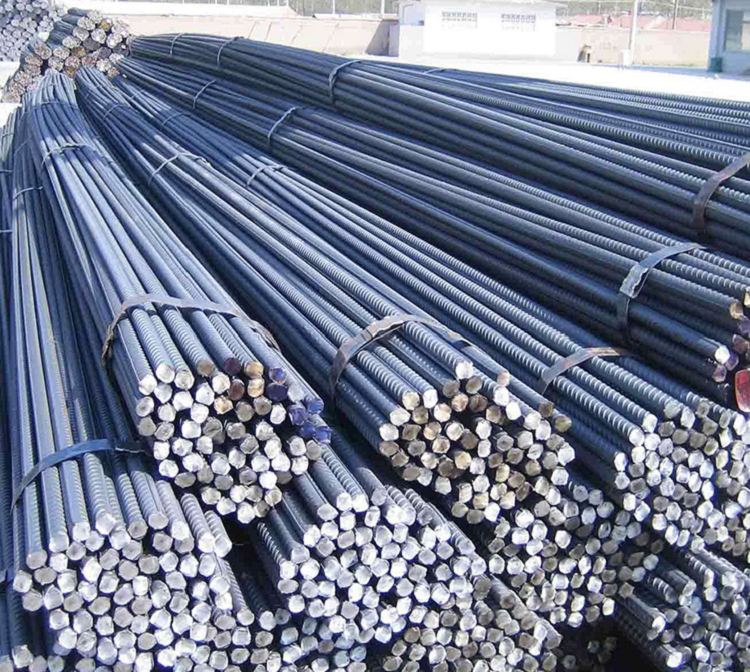
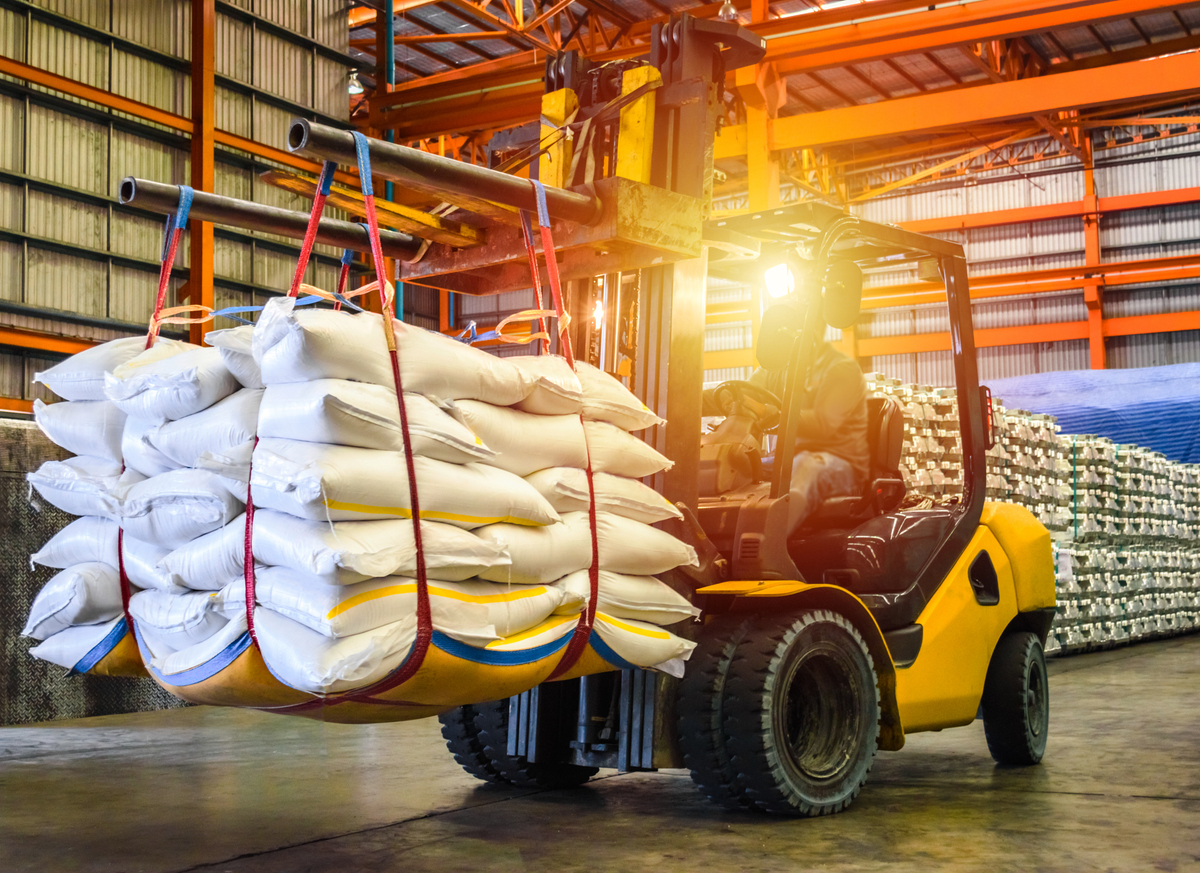
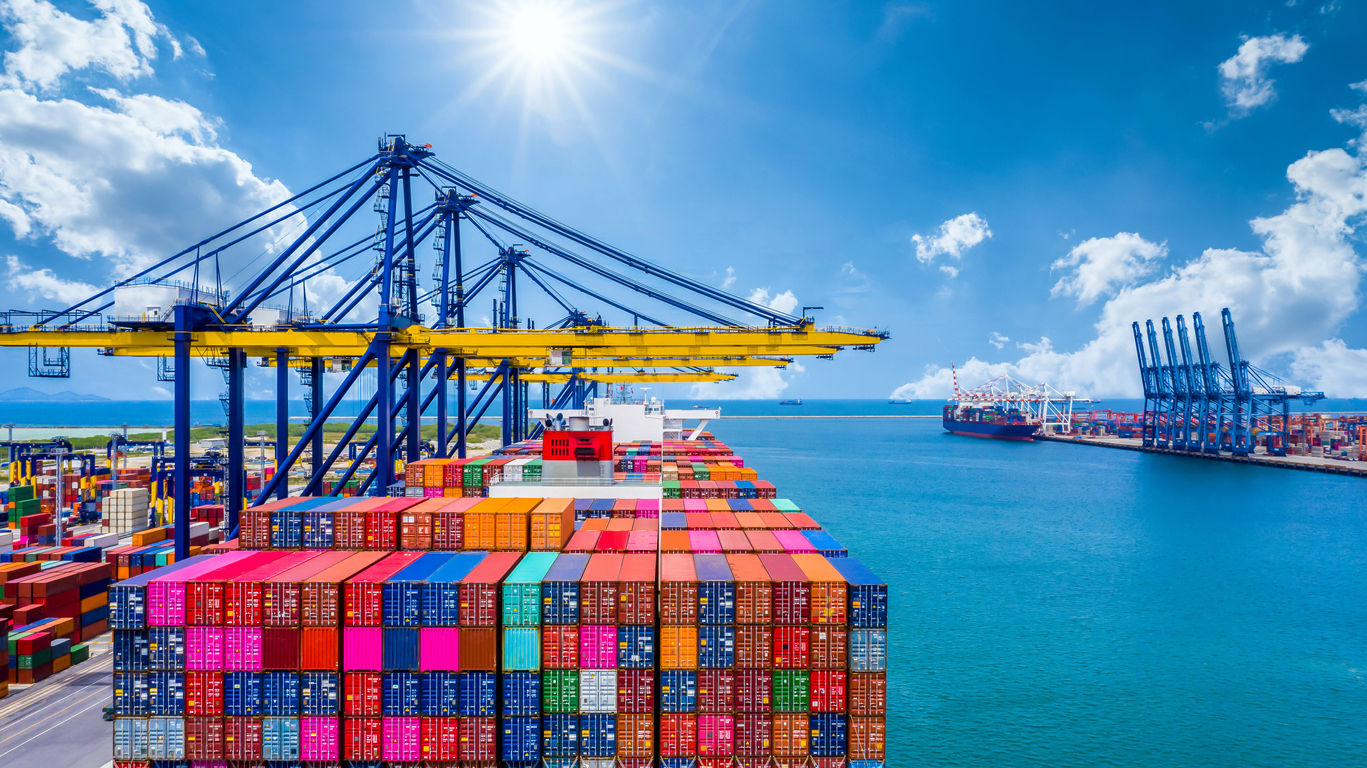
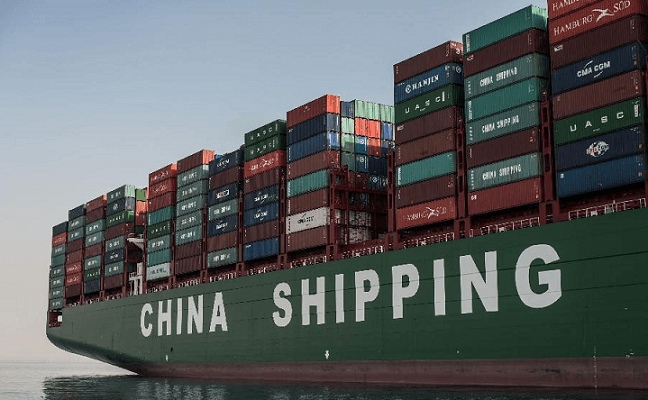

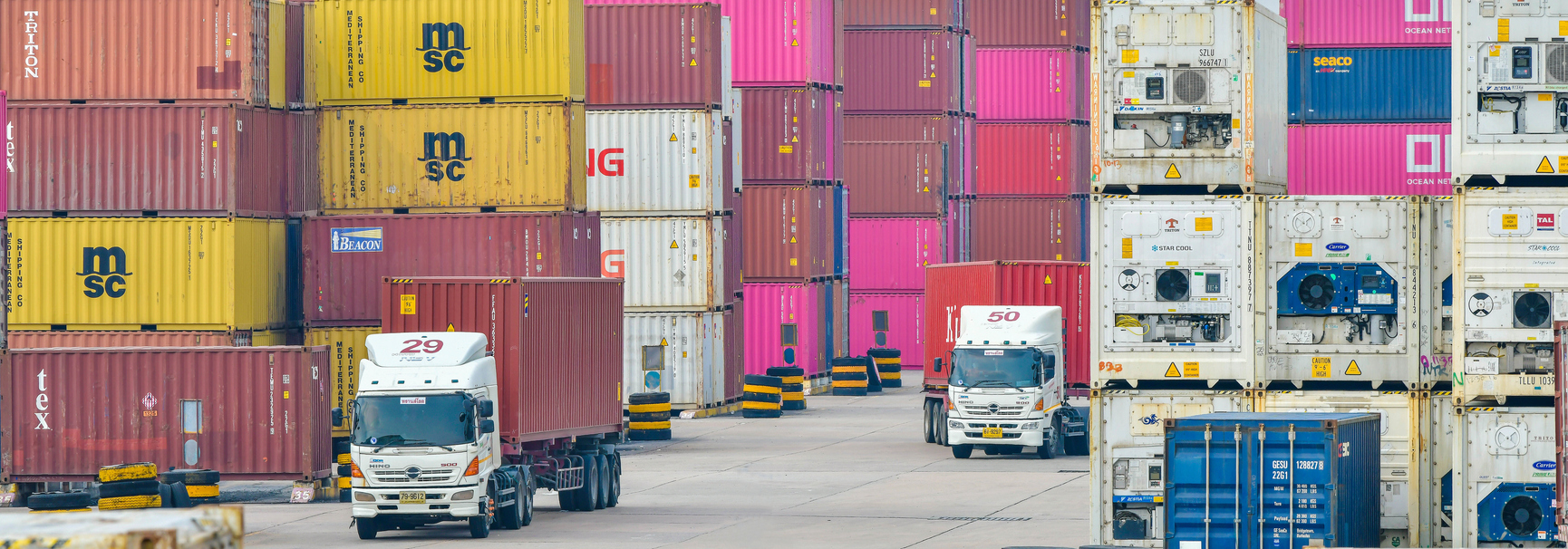
Comments are closed.